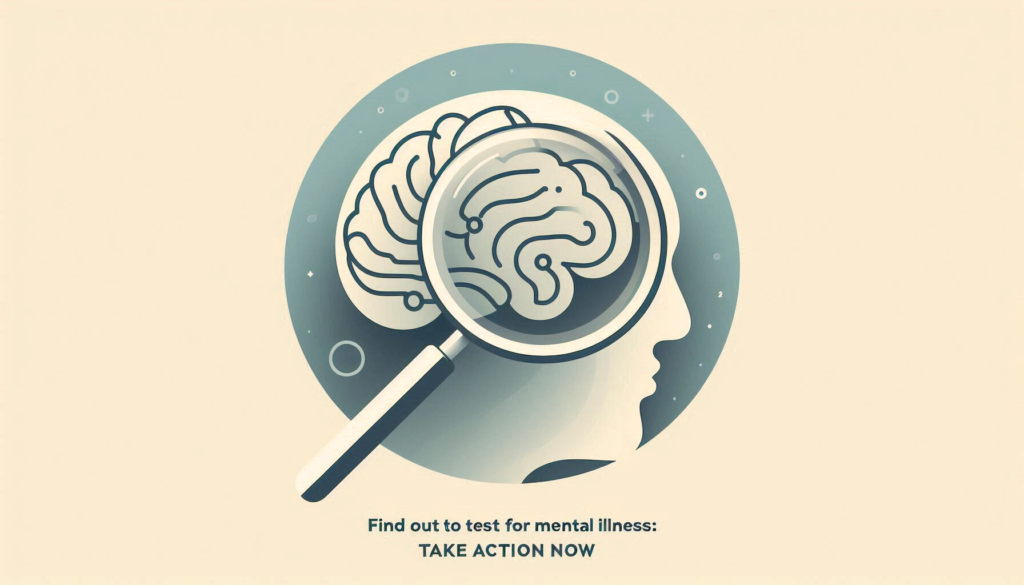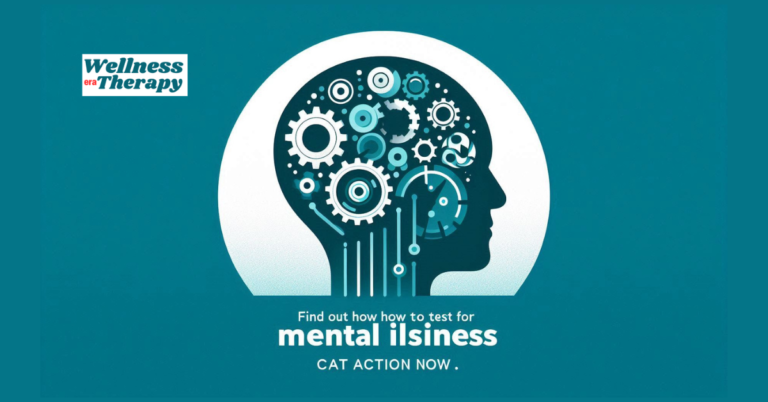Taking the First Step Towards Mental Well-being
Mental health is as crucial as physical health, yet it’s often overlooked until a crisis arises. If you’re feeling overwhelmed, confused, or just not yourself, it might be time to consider testing for mental illness. Testing isn’t about labeling; it’s about understanding what you’re going through and finding the right path to better mental health. This guide will walk you through the process of testing for mental illness, helping you take the first step toward healing.
Who Should Consider Mental Illness Testing?
1. Individuals Experiencing Symptoms:
If you’ve been struggling with persistent feelings of sadness, anxiety, mood swings, or unusual behavior, it’s crucial to consider getting tested. Early detection can lead to effective treatment and a better quality of life.
2. Family and Friends of Affected Individuals:
Understanding a loved one’s mental health challenges can be difficult. If someone close to you is showing signs of mental distress, encouraging them to seek testing can be a compassionate first step.
3. Mental Health Professionals and Educators:
Professionals in the field may seek comprehensive testing tools and methods to better support their clients or students. This guide provides insights into the available options.
4. Employers and Human Resources Teams:
For those responsible for employee well-being, understanding mental health testing can help create a supportive work environment, ultimately improving productivity and job satisfaction.

What is Mental Illness Testing?
Mental illness testing involves a series of evaluations designed to diagnose mental health disorders. These tests range from self-assessment questionnaires to in-depth evaluations conducted by mental health professionals. The primary goal is to identify symptoms, understand their severity, and determine the best course of action for treatment.
Types of Mental Illness Tests
1. Self-Assessment Tools:
These are online questionnaires or apps that allow individuals to reflect on their mental state. They’re a good starting point but should not replace professional evaluation.
2. Psychological Evaluations:
Conducted by psychologists or psychiatrists, these evaluations involve a series of interviews and standardized tests. They help diagnose specific conditions like depression, anxiety, bipolar disorder, or schizophrenia.
3. Neuropsychological Tests:
These tests measure cognitive functions such as memory, problem-solving, and attention. They’re particularly useful for diagnosing conditions like ADHD, dementia, and brain injuries.
4. Laboratory Tests:
In some cases, blood tests or brain scans might be required to rule out physical conditions that could be causing mental health symptoms, such as thyroid issues or brain tumors.
How to Prepare for Mental Illness Testing
1. Keep a Symptom Journal:
Documenting your symptoms, including when they occur and their severity, can provide valuable insights during your evaluation.
2. Gather Medical History:
Be prepared to share your medical history, including any past mental health issues, medications, and family history of mental illness.
3. Be Honest and Open:
Testing is most effective when you’re completely honest with your healthcare provider about your symptoms, feelings, and lifestyle.
The Testing Process: What to Expect
1. Initial Consultation:
Your first step will likely be a consultation with a mental health professional. They’ll ask about your symptoms, lifestyle, and any stressors that might be affecting your mental health.
2. Diagnostic Testing:
Based on the initial consultation, you may undergo a series of diagnostic tests. These can include questionnaires, interviews, and possibly laboratory tests.
3. Evaluation of Results:
After the tests, your mental health professional will review the results with you, explaining the findings and what they mean for your mental health.
4. Next Steps:
Depending on the diagnosis, your provider will recommend a treatment plan. This could include therapy, medication, lifestyle changes, or a combination of these approaches.
Benefits of Early Testing
1. Early Detection and Treatment:
Identifying mental health issues early on can lead to more effective treatment and a better prognosis. It can also prevent the condition from worsening.
2. Personalized Care:
Testing allows for a more tailored approach to treatment, ensuring you receive the care that best suits your needs.
3. Improved Quality of Life:
Understanding your mental health condition and receiving the appropriate treatment can significantly improve your overall well-being and daily functioning.
Encouraging a Loved One to Get Tested
Starting a conversation about mental health can be challenging, but it’s crucial for the well-being of those you care about. Here are some tips:
1. Approach with Empathy:
Express your concerns without judgment. Let them know you’re worried and that testing is a step towards feeling better.
2. Provide Support:
Offer to help them find a mental health professional or accompany them to their appointment. Sometimes, just knowing they’re not alone can make a big difference.
3. Be Patient:
It may take time for someone to come to terms with the idea of testing. Be patient and continue to offer your support.
Take Action for Better Mental Health
Testing for mental illness is not a sign of weakness; it’s a proactive step towards understanding your mental health and improving your quality of life. Whether you’re experiencing symptoms yourself or are concerned about someone you love, knowing how to approach testing is crucial. Don’t wait—take action now to secure a healthier, happier future.
FAQ
1. What are the first steps to take if I think I have a mental illness?
If you suspect you have a mental illness, the first steps include observing your symptoms, documenting any patterns, and seeking an initial consultation with a mental health professional. Self-assessment tools can also be a useful starting point, but professional evaluation is essential for accurate diagnosis and treatment.
2. How do I find the right mental health professional for testing?
Finding the right mental health professional involves researching specialists in your area, checking their credentials, and reading reviews. Consider contacting your primary care doctor for recommendations, or use online directories that list certified mental health professionals. It’s important to find someone you feel comfortable with for the best results.
3. Can mental illness tests be done online?
While there are online self-assessment tools available that can give you an initial understanding of your mental health, these should not replace professional diagnosis. For an accurate assessment, it’s crucial to consult a licensed mental health professional who can conduct a comprehensive evaluation and recommend appropriate treatment.


